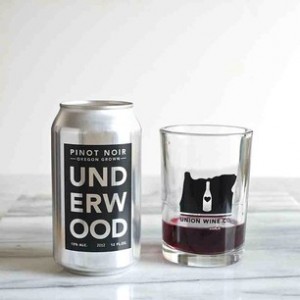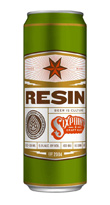
As craft beer continues to gain in popularity and style, it seems wine now might be taking a page out of its book. As Ryan Harms, owner of Union Wine Co. of Portland, Ore. told Fast Company, his winery “is at the forefront of a new trend, the ‘beerification’ of wine.”
This so-called “beerification” describes his company’s decision to can its Pinot Gris and Pinot Noir next year.
So what’s next? Watch out for whiskey in a box.
If wine’s utmost prevalence is typically associated with countries like France and Italy, then beer goes with Germany. As such, the German Brewers’ Federation has applied to Unesco to have its purity law (the Reinheitsgebot) recognized as a part of the world’s “intangible heritage,” something which represents inherited traditions of the past.
According to the Associated Press (AP), the law dates back to 1516 and allows only water, barley, malt, hops and yeast for brewing.
The criteria for selection are nothing to scoff at either. For instance, an applicant must do one of many things to be considered, including “represent a masterpiece of human creative genius.”
If beer doesn’t qualify, then what does?

Dan Reeve is the aforementioned home brewer who sent his Clone to Sixpoint for further review and evaluation.
“Dan’s version was remarkably similar — a little darker than the real thing, but great for a clone,” said Pete Dickson, Sixpoint’s headbrewer. A good, solid beer in its own right.”
Reeve told Sixpoint that after first trying Resin, he felt the need to recreate it, saying “The aroma is almost intoxicating itself; how could anyone not want more of it?”
He added that while the beer isn’t an exact clone — noting the Clone “has a bit too much sweetness that takes away from the spicy finish” — he and his co-brewers are happy with the finished results.
“At the end of the day, that’s all that really matters. That and it has alcohol in it,” Reeve said.
Yes, alcohol is good for beer. One thing it’s not good for, according to some, is social success. The Advertising Standards Authority (ASA), the UK’s independent regulator for advertising across all media, just deemed one beer ad — “Let there be beer” — in violation of alcohol rules by implying drinking beer makes you popular.
The ASA agreed with the Youth Alcohol Advertising Council, which raised the initial complaint and ruled that the ad must not be broadcast again in its current form, which features people in different, seemingly miserable situations, rejoicing over beer.
The Coalition of UK Brewers argued that its film “was an exaggerated interpretation of the real world and celebrated, in a light-hearted way, the role that beer can play in life,” according to Brand Republic.
The minute long ad was created by Rainey Kelly Campbell Roalfe/Y&R and was green-lit by Clearcast.
The ad is embedded below.
